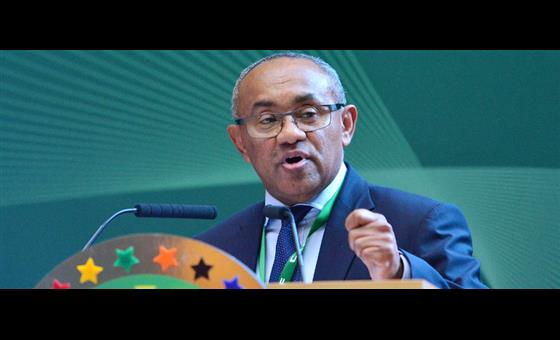CAF makes major reform, scraps sides’ indemnities to referees
CAF is continuing on its path of dogged transformation of the game in Africa as the continental body has scrapped the system of host sides paying indemnities to referees.
Africa’s football governing body will now pay referees directly for their work, reducing the possibility of host sides influencing match officials under the guise of paying indemnities.
The verdict will also lift the financial burden on sides competing in CAF competitions as they must pay referees and supporting match officials these monies.
The decision will take immediate effect after the Executive Committee, On Wednesday, ratified the proposal by CAF’s new leader Ahmad who is seeking to revolutionize the game in Africa.
It is a major victory for President Ahmad who had campaigned to end the system in his promise to fight corruption in the game and reduce financial burden on sides.
“Effective 2018, indemnities of referees designated for CAF matches, will be paid directly by CAF,” a CAF statement on the decisions of the Executive Committee read on Wednesday night.
“This historic decision is a materialization of a campaign promise by the CAF President.
“Till now, the regulations required host associations to pay these indemnities.
“The decision reduces the financial burden on national associations and also eliminates an ethical challenge because it removes the suspicion perceived between national associations and the referees.”
Eliminating contact between match officials and host sides before matches has been the main cause of suspicion of match fixing by referees.
Several bizarre decisions by referees during continental matches has been linked to the payment of indemnities with some said to be too kind for visiting match officials.
Some clubs and countries have also avoided paying match officials as the cost has proven to be overbearing for some of these sides.
This is the latest of the raft of massive changes being brought into force by the new CAF regime targeted at transforming the game on the continent.
The Ahmad-led administration has moved the Africa Cup of Nations from January/February to June/July to avoid the consistent struggle between European clubs and African countries over their release of players for the continent’s flagship football competition.
The decision will relieve African players -majority of who play in Europe – of the difficulty of leaving their clubs at the middle of the season to play at the Cup of Nations.
The move will also make Africa’s flagship competition more attractive to big television broadcasters in Europe, America and Asia as there would be no major football on television in the summer, bringing more revenue to the continent’s governing body.
For the first time, CAF is offering direct cash support in the form of a grant to the five African countries at the World Cup – a move meant to avoid perennial fights between players and their federations over their bonuses.
The cash boost will also give the sides the needed concentration to excel at the global competitions.
The inter-clubs competitions are facing a change in their calendar and its organisation as CAF seeks to improve its attractiveness.
Qualification for continental junior competitions in Africa have been regionalized to encourage regions that hitherto struggled to qualify – to gain qualification to help them improve and catch up on giants in the West African regions who have dominated junior competitions.





